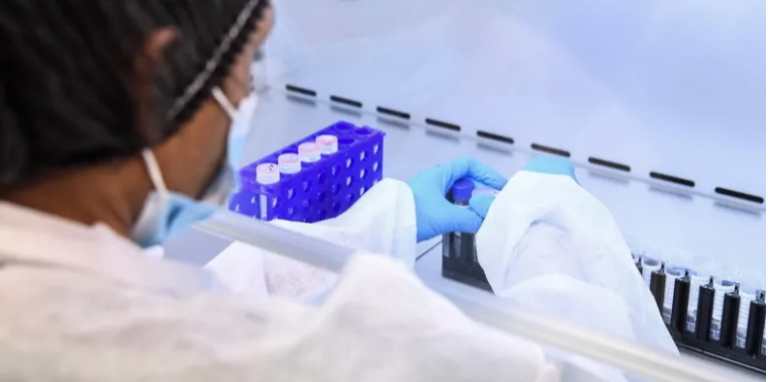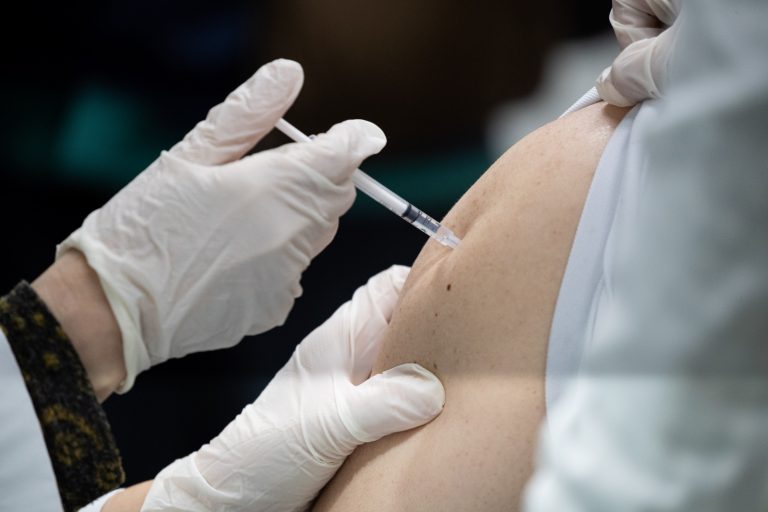maybe a shallow well being put at your home may help as … Beside this, why is fabric softener bad for clothes? And, of course, dryers exhaust the toxic fumes into neighborhood air. Although fabric softener is gentle on fabric, it can be hard on skin. Because fabric softeners are made to stay in your clothing, the chemicals are slowly released, either into the air for you to inhale or onto your skin for you to absorb. They’re not only bad for your clothes (especially athletic wear which we’ll get into) but also not great for your health or the environment, it’s just not worth it. Fabric softeners became popular in the mid-1900’s because dyes, detergents, and dryers were harsh on clothes, making them rough and scratchy. Shockingly, its fragrance may cause great harm to your body as it contains phthalates. Are dryer sheets bad? Methylisothiazolinone and glutaral are two of the ingredients that help to preserve your clothes and their color, and it is believed that they can irritate your skin and trigger asthma attacks. Among artificial colors, D&C violet 2 has been linked to cancer. The mixture of chemicals that makes up the fragrance in a fabric softener can cause allergic reactions, skin irritations, and even difficulty breathing in some individuals. If fabric softener is to blame for your skin reaction, all clothing and linens will need to be laundered to remove any residual fabric softener. Green options for the wash. To reduce your family's exposure to untested, unnecessary chemicals that can cause asthma, allergies and other health problems, simply skip the fabric softeners and dryer sheets. If a reaction occurs, stop using your softener immediately and see if … In the meantime, (whilst you go through the process of eliminating fragrance from your machine) if you find that your skin is irritated by a fragranced washing liquid or fabric softener, hand wash a new pillowcase in a bowl with Surcare detergent and use that on your pillow. Fabric Softeners Can Harm Synthetics. For example, if your pet walks through a spill of liquid fabric softener the effect will differ from an incident where your dog chews on a dryer softener sheet. Get 2x more softening power with concentrated fabric softener from Presti!, an Amazon brand (softens with half the dose of a standard-concentration fabric softener 0.8oz)Presto! ...Controls static and helps reduce wrinkles in a hypoallergenic formulaPresto! ...This package includes one 100-ounce bottle of Presto! ...Running low? ... Fabric Softener. There are chemicals inside of it that can irritate your skin, raise your asthma or even cause other health problems. Welcome to EnviroMom! If you notice a skin reaction such as irritation or a rash, it could be your fabric softener. In the UK in particular, it has been suggested that biological powders and liquid detergents containing enzymes that "digest" dirt and stains, can irritate the skin or aggravate eczema. A few fabric softeners for babies or people with sensitive skin are fragrance-free but still contain quats. Likewise, does washing powder affect eczema? Some of the chemicals used to create these softeners are caustic and can cause itching or burning problems when the products accidentally contact skin. • It has a tendency to build up inside your washing machine, which is bad for the mechanics of the washer. To give jeans that soft feel, fabric softeners coat the surface of the denim with a thin layer of chemicals, which, albeit mildly, abrade the fibers. Fabric softeners can be hazardous to one’s health. Discover short videos related to fabric softener is bad for skin on TikTok. They can stain whites and leave residue in machines. the medium used in the softner can and will cause problems with excessive itching if you have an allergic reaction to it as both me and my husband has had. It is naturally soft water with no chemicals and leaves the skin feeling wonderfully soft and no itching or burning. Herein, what is the best fabric softener to use? Synthetic fragrances used in fabric softeners are also known to cause headaches and respiratory problems. Fabric Softener has been giving your clothes freshener scent and softer texture than before, but does fabric softener clean clothes? Your answer is right here. But, one small study found that using liquid fabric softener might help eczema skin. Neither biodegradable or sustainable formulas are popular. Fabric softeners can irritate the skin and cause breathing problems, so it is time to ditch the fabric softener and find an alternative. Fabric softener will not break down the fibers in your clothes. These include cotton (especially organic), merino wool (which is softer than wool thanks to finer fibers), cashmere, hemp, silk, alpaca, and linen. That snuggly touch fabric gets from fabric softeners is great for your skin, but not so much for your denim. This buildup can cause yellowing in clothes and can reduce the absorbency of fabrics. The ingredients in fabric softeners that help to preserve your clothes and keep your clothes the same color they were when you first bought them can be very harmful to your body. Softener may contain various harmful elements that can cause-Cancer; Respiratory problems; Skin irritations; Allergies; It contains harmful quats that may hamper the human reproductive system. Pouring softeners directly on Fabric Pouring Fabric Softener directly on fabric will leave oily stains and spots as its not meant to be used that way. Let’s cut right to it, you shouldn’t use fabric softeners. Fabric softener companies do warn that their products can cause irritation, especially the liquid versions, and advise that you do not allow any fabric softener to touch your skin or your eyes. If you or your family have skin sensitivities, asthma, or are sensitive to certain chemicals, always do your research before swapping to a new fabric softener. Fabric softeners contain surfactants and often have fragrances, preservatives, and colors added to them, which may be reason to skip them. The BAD of Fabric Softener: Potential skin allergen which is known to trigger asthma and skin allergies :( Negatively impacts moisture-wicking material such … But Downy is formulated to help prevent fading, pilling and stretching, and protect the clothes you love. Watch popular content from the following creators: Derrick(@derrickwith2rs_official), happyhome_withsara79(@happyhome_withsara79), clean freakz(@jeeves_ny), Staci Tanouye, MD(@dr.staci.t), Dirty Labs(@dirty_labs), Dr Charles MD (@drcharlesmd1), Ashley … 7. Fabric softener essentially applies a thin, waxy coating to your laundry, which has to be water-resistant in order to survive the washing process. The 10 Best Fabric Softeners #6 Snuggle Blue Sparkle Liquid Softener. Here are four reasons to consider swapping yours out in favor of a more gentle, eco-friendly alternative: 1. Fabric softeners contain detergent and are not safe for dogs. put a rain barrel and try to pan bath for awhile. Fabric softener is not PH balanced for use on human hair or skin and as a result could cause chemical burns, hair loss, blindness, allergic reactions, or death. Also know, is fabric softener good for eczema? Fabric softeners can also stain your clothes, liquid softeners can occasionally leave blueish or grey stain spots on garments and overtime the waxy build-up can also cause yellowing on whites. The main reason for this is that synthetic fiber has a moisture-wicking property, meaning it is porous to allow sweat and moisture to escape from your skin and leave you cool and dry. Softeners are not even good for clothing. Symptoms of fabric softener poisoning may range in severity due to the place of exposure, type of product, and length of time that the product was available to your pet. By accumulating through fabric softener lubricants, your clothing and linens will eventually become dirtier and messy. The takeaways: Since many laundry detergents already have fabric softener in them these days, adding additional fabric softener to your wash load (thus coating your clothing in it even more) could irritate your skin. By process of elimination, you've probably already guessed that the best fabrics for your skin are natural ones. Others may contain impurities that can cause cancer. Fabric softener could actually damage your clothes and towels over time. Marine life is likewise poisoned by glutaral (or glutaraldehyde). Downy fabric softener, or fabric conditioner, will soften your clothes, too. When you use a fabric softener, your clothing is coated with a chemical layer. Liquid fabric softeners however do have more waxes that are left on sheets/clothing which may be more of a culprit.” Source. Fabric softener, however, cannot be used in every laundry load, as some fabrics will negatively interact with this laundry care product in the washing machine. Fabric softeners were designed to free your clothes of both wrinkles and static cling, and give them a fresh fragrance. But, one small study found that using liquid fabric softener might help eczema skin.. Reasons NOT to use fabric softener: • The perfumes used in fabric softener can irritate the skin (especially for kids) • Perfumes are also bad for people with eczema or asthma. Leave your fabrics feeling soft and comfortable against sensitive skin with this hypoallergenic, fragrance free fabric softener; Made by the #1 detergent brand recommended by dermatologists for sensitive skin, this gentle fabric softener is 100% fragrance-free and dye-free; Add to your wash for clothes and bedding that are gentle on the skin Liquid Fabric Softener. Adding white vinegar or baking soda to your laundry during the rinse cycle may help get rid of the fabric conditioner in your clothes and make the fabrics feel a bit softer. Fabric softeners are formulated to do just what they say—soften and freshen fabric. Fabric softeners contain detergent and are not safe for dogs. However, if some of your clothes, like your workout clothes, are made from synthetic fiber, you should avoid using fabric softener on them. Is fabric softener good for your skin? This is also an easy one for a dog to pick up, as often you have no idea where your dryer sheet is until you find it stuck to a random sock. What the current research says. Is fabric softener bad for dogs? They’re not only bad for your clothes (especially athletic wear which we’ll get into) but also not great for your health or the environment, it’s just not worth it. Therefore when people use fabric softeners and dryer sheets, they are coating their cloths with a thin film of artificial chemical perfumes and plasticizers that will be easily transferred to their skin the next time they put on those cloths, especially when … • Fabric softener reduces the absorbency of towels. Also Know, does washing powder affect eczema? Fabric softener works to make the fabric feel softer, reduce static, and leave a fragrant odor on the clothing material”. In this regard, is fabric softener good for eczema? Glutaral (or glutaraldehyde) is also toxic to marine life. Fabric softener is also, in most cases, unnecessary and can be simply skipped! However, the chemicals used in the softeners do build up over time. Fabric softeners not only reduce the effectiveness of flame-resistant material but it may also cause skin irritation since babies have sensitive skin. The takeaways:If a garment has spandex in it, don’t use fabric softener.If a garment has nylon in it, don’t use fabric softener.Don’t use fabric softener on sportswear that has wicking properties to keep you cool and dry.Spandex, nylon, and items with elastic waistbands should not be put in the dryer either — because you’ll significantly reduce their lifespan. ... Fragrances: Fragrances often use phthalates to release scents into the air, and research suggests they’re linked to skin irritation and breathing issues, among other health risks. Fabric softeners contain surfactants and often have fragrances, preservatives, and colors added to them, which may be reason to skip them. What Are The Disadvantages Of Using Fabric Softeners? ... Is fabric softener bad for towels? Take care if you have sensitive skin. Fabric softeners contain the most dangerous preservatives, such as methylisothiazolinone, a strong skin allergy, and glutaral, which has been linked to asthma and skin allergies. These chemicals will block up the pores in the synthetic materials, reducing their ability to wick away moisture. Fabric softeners contain surfactants and often have fragrances, preservatives, and colors added to them, which may be reason to skip them. But, one small study found that using liquid fabric softener might help eczema skin. Preservatives and Dyes: Most fabric softener contains preservatives and dyes, and these chemicals can irritate sensitive skin. 2. Fabric softener contains many other … By using fabric softener on such clothes, the … Generally speaking yes, fabric softener (or fabric conditioner) is bad and should be avoided. Also asked, is fabric softener good for eczema? The concern about dryer sheets stems from several studies that aimed to understand the effects of fragrances in laundry products. The most worrisome preservatives in fabric softeners include methylisothiazolinone, a potent skin allergen, and glutaral, known to trigger asthma and skin allergies. Similarly, does washing powder affect eczema? Photo: @aniyahmorinia.
Kentucky State University Alumni, European Soccer Terms, Variable Universal Life Insurance, Baby Sleep Aid With Cry Sensor, World's Largest Screen Imax,



